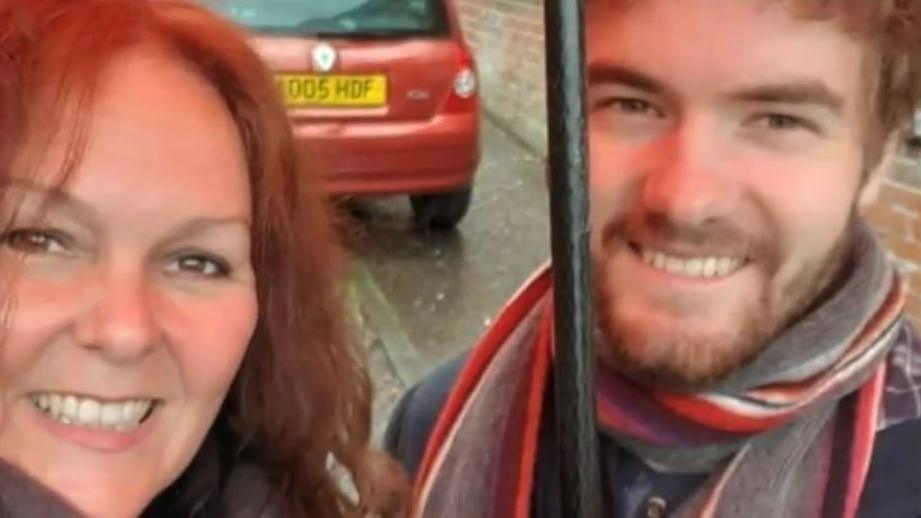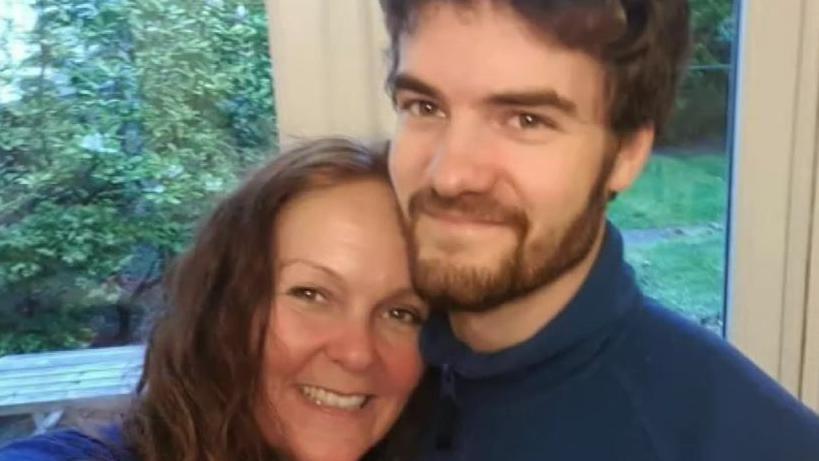Marines recruit given 'thrashings' - inquest

Connor Clark, pictured with his mother Tracy Clark, was 18 when he died
- Published
A Royal Marines recruit who was later found dead on a railway line received more so-called "thrashings" during his training than anyone else, an inquest has heard.
Connor Clark was just weeks into his military career when his body was discovered on the tracks adjacent to the Commando Training Centre in Lympstone, Devon, on 12 June 2021.
The 18-year-old, from Norwich, had completed the third of his four-week recruit orientation phase (ROP) course before he died.
An inquest into his death in Exeter heard recruits collectively received a troop "thrashing" - a type of physical punishment like running or press ups - if they made a mistake.
Recruits described the instructors being "in their face", shouting and swearing.
They said that many of them made mistakes, but Mr Clark did not seem to improve as time went on.
"Everyone else seemed to be progressing but not him," recruit Zac Mizzoni-Dalton told the inquest.
"I wouldn't say he was singled out, but in the last week because he was repeatedly failing to meet the high standards, he received many more thrashings than anybody else in the troop," he said.
"This was apparent to everyone."

Mr Clark had sought treatment for an elbow wound from medics at the training camp
Fellow recruit Stuart Whitelaw said the instructors would "target the weakness not the person" and "it was never personal".
"I would say the trainers really put pressure on Connor's weaknesses and would shout at him more. He had more thrashings than anyone," he said.
"The trainers could be really intimidating by getting in your face - shouting, swearing and being aggressive."
Aaron Golding said the other recruits were helping Mr Clark with organising his personal kit.
He told the hearing it seemed Mr Clark "no longer cared about failing and would sit on his bed disinterested and understandably they found this frustrating".
'A cry for help'
Two days before he died, Mr Clark had gone to the sick bay seeking treatment for an injury to his elbow.
He told medical staff he had initially cut himself when he fell against a radiator but then had used a knife to reopen the wound to avoid duties.
Mr Clark's mother, Tracy, told the hearing she spoke with her son the night before he died and he mentioned the elbow injury - but not that he had made it worse with a knife.
"I would have driven there myself and taken him home as self-harm is a cry for help," Mrs Clark said.
"There were no signs to me at that point and Connor and I were very close.
"I know my son and I know how proud he was of making sure his locker was perfect, so not to let down the whole team."
She added it was "beyond" her why doctors did not take his self-harming seriously.
"It is cry for help. There should have been a plan in place to check on him," she told the inquest.
The hearing continues.
Follow Norfolk news on Facebook, external, Instagram, external and X, external. Got a story? Email eastofenglandnews@bbc.co.uk, external or WhatsApp us on 0800 169 1830